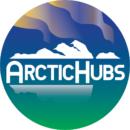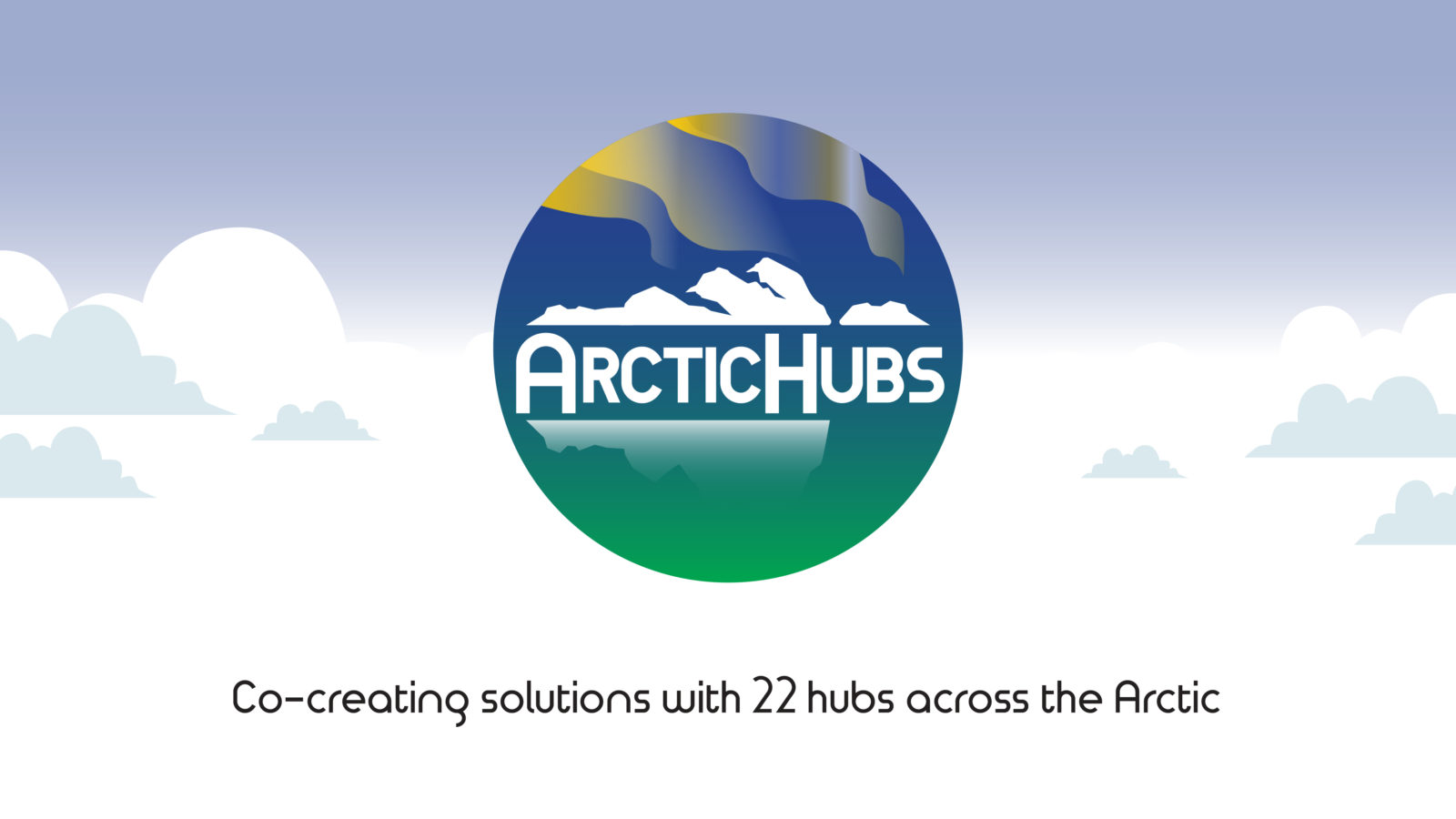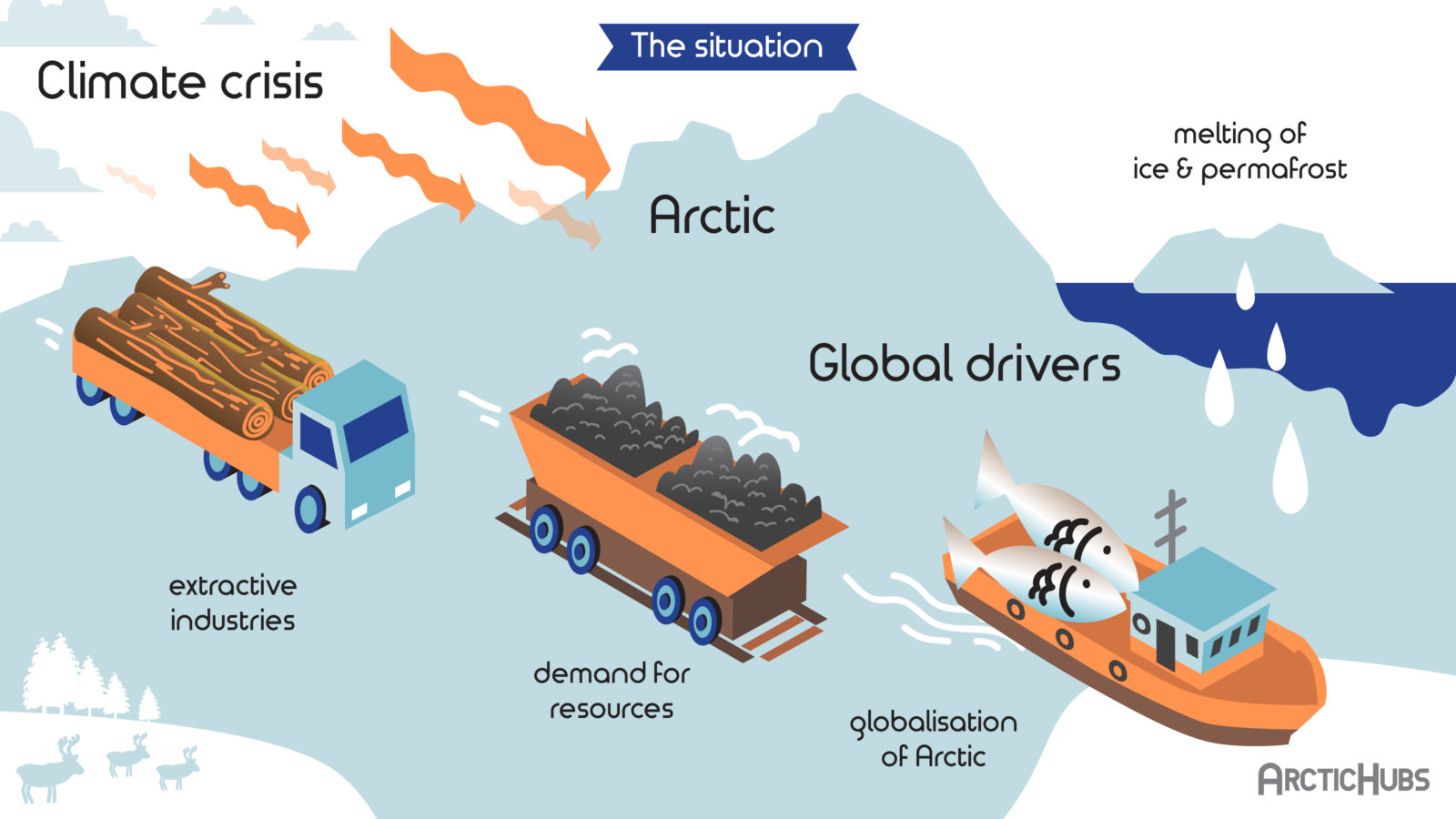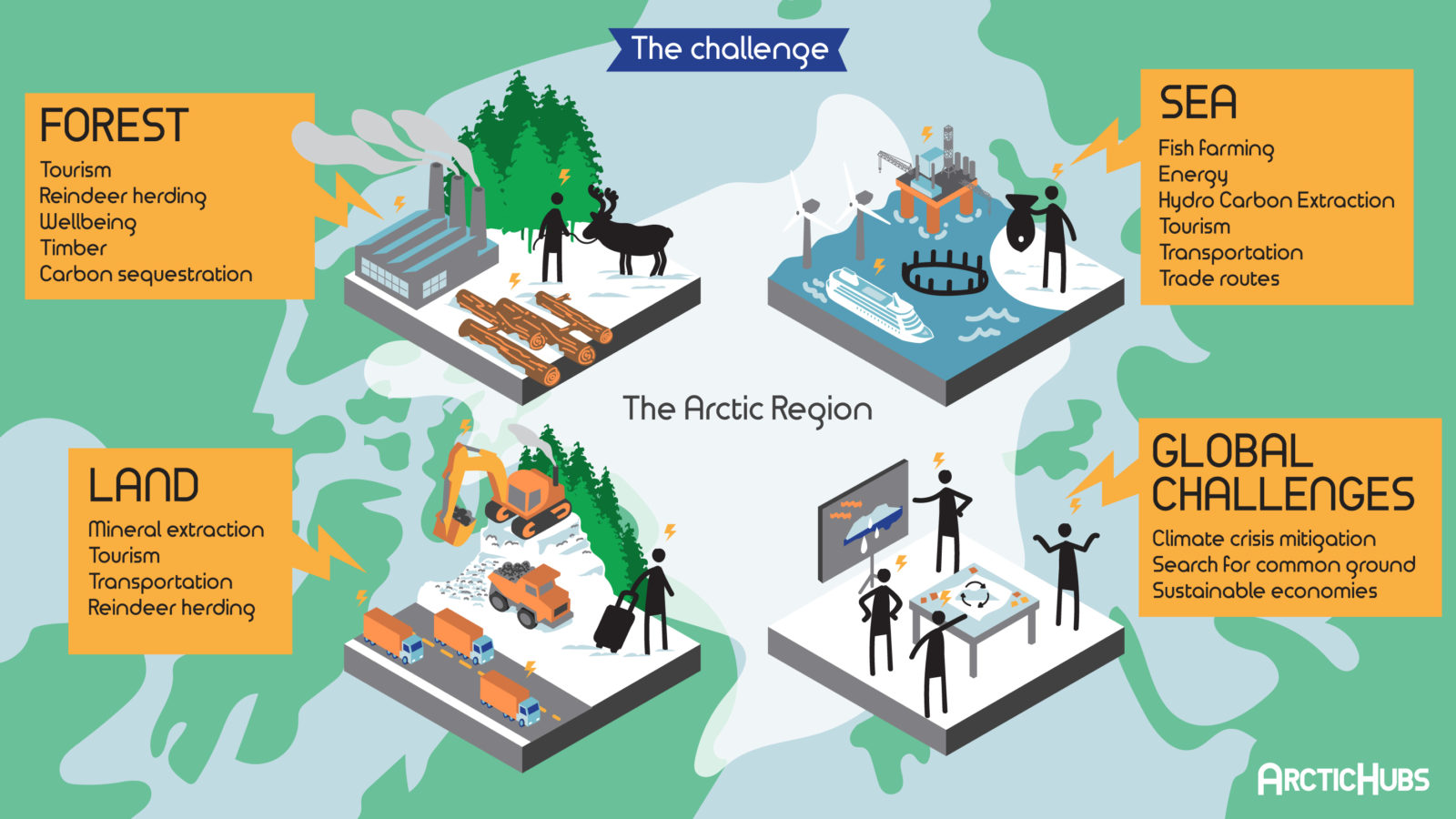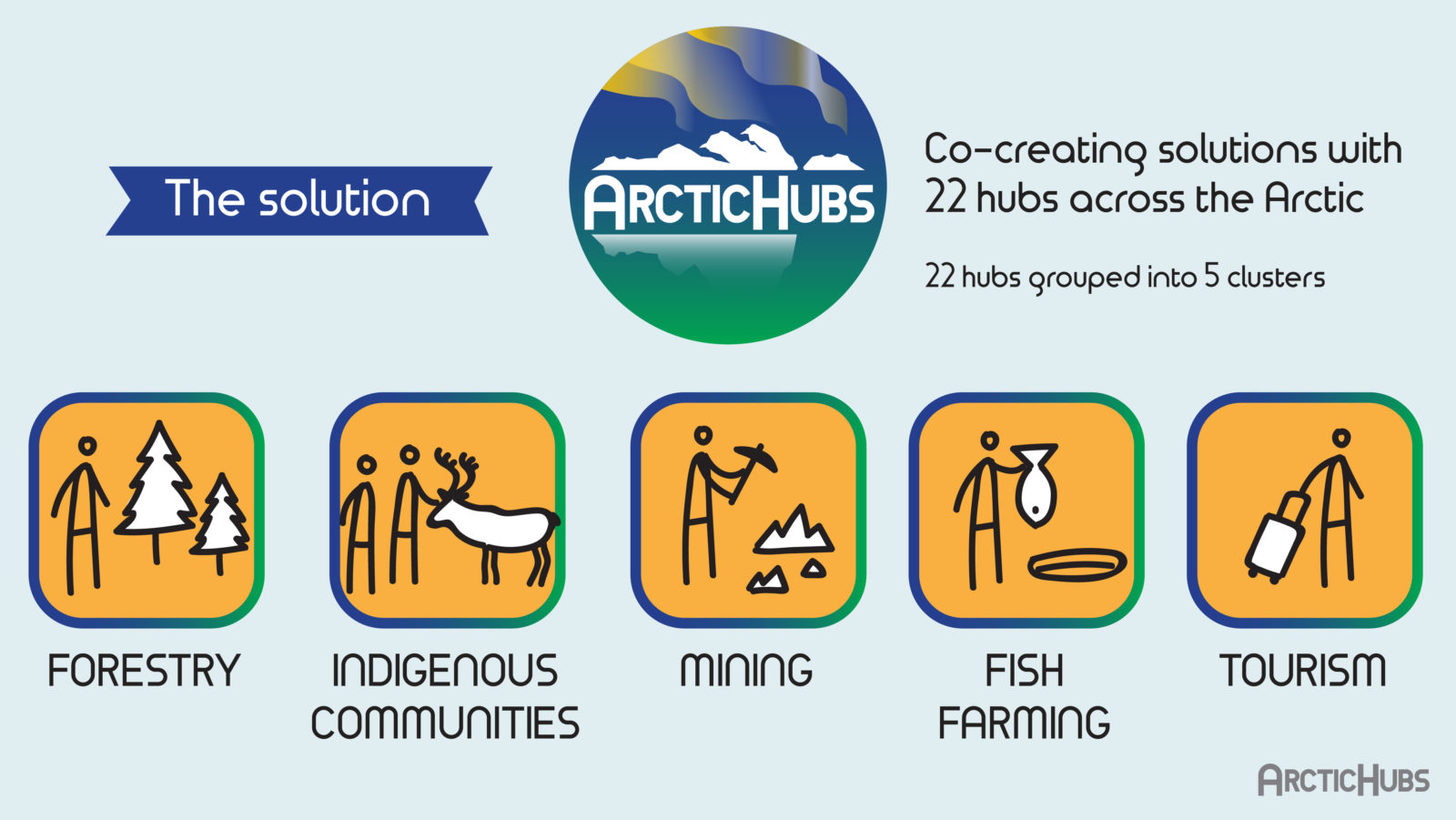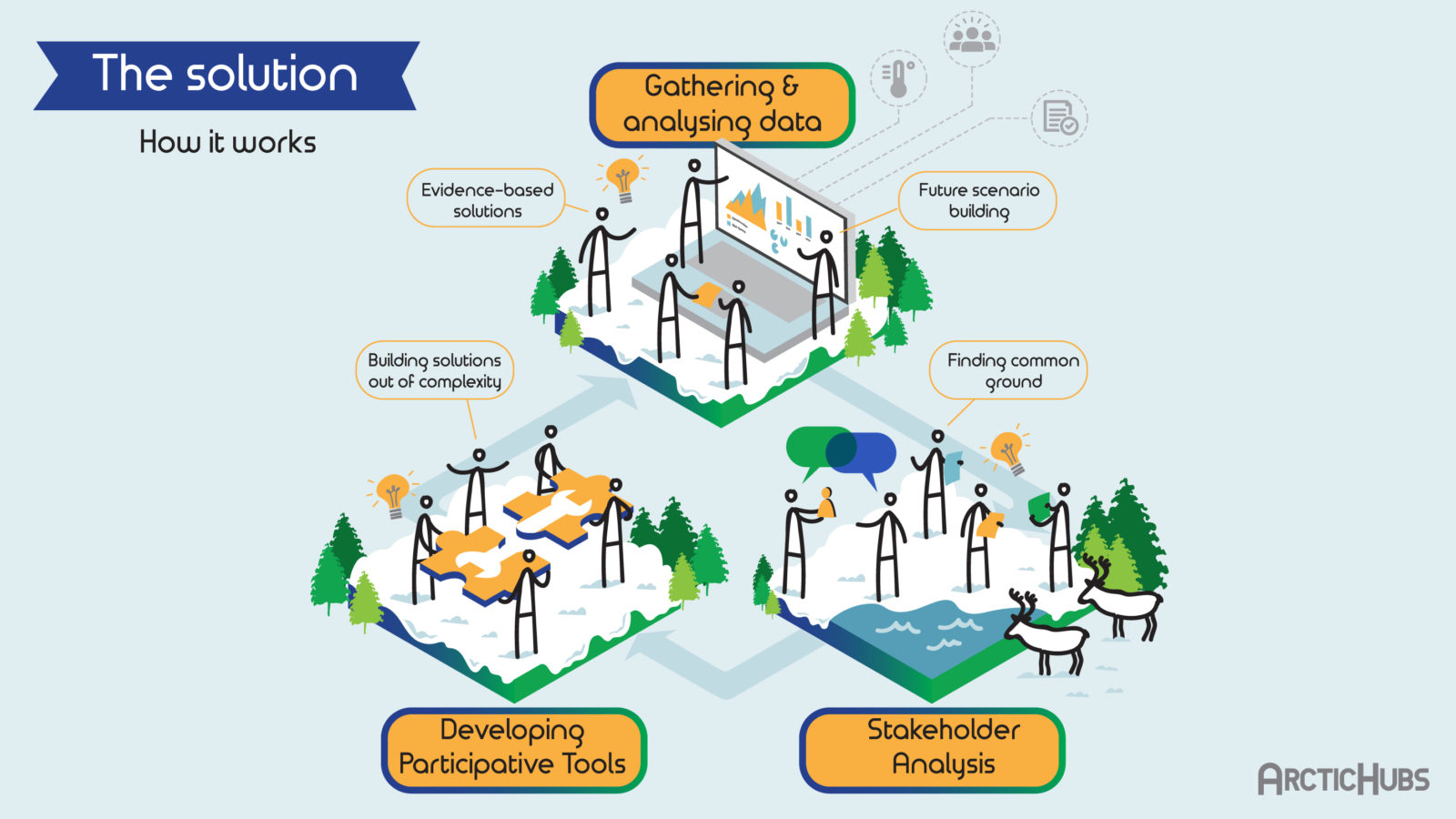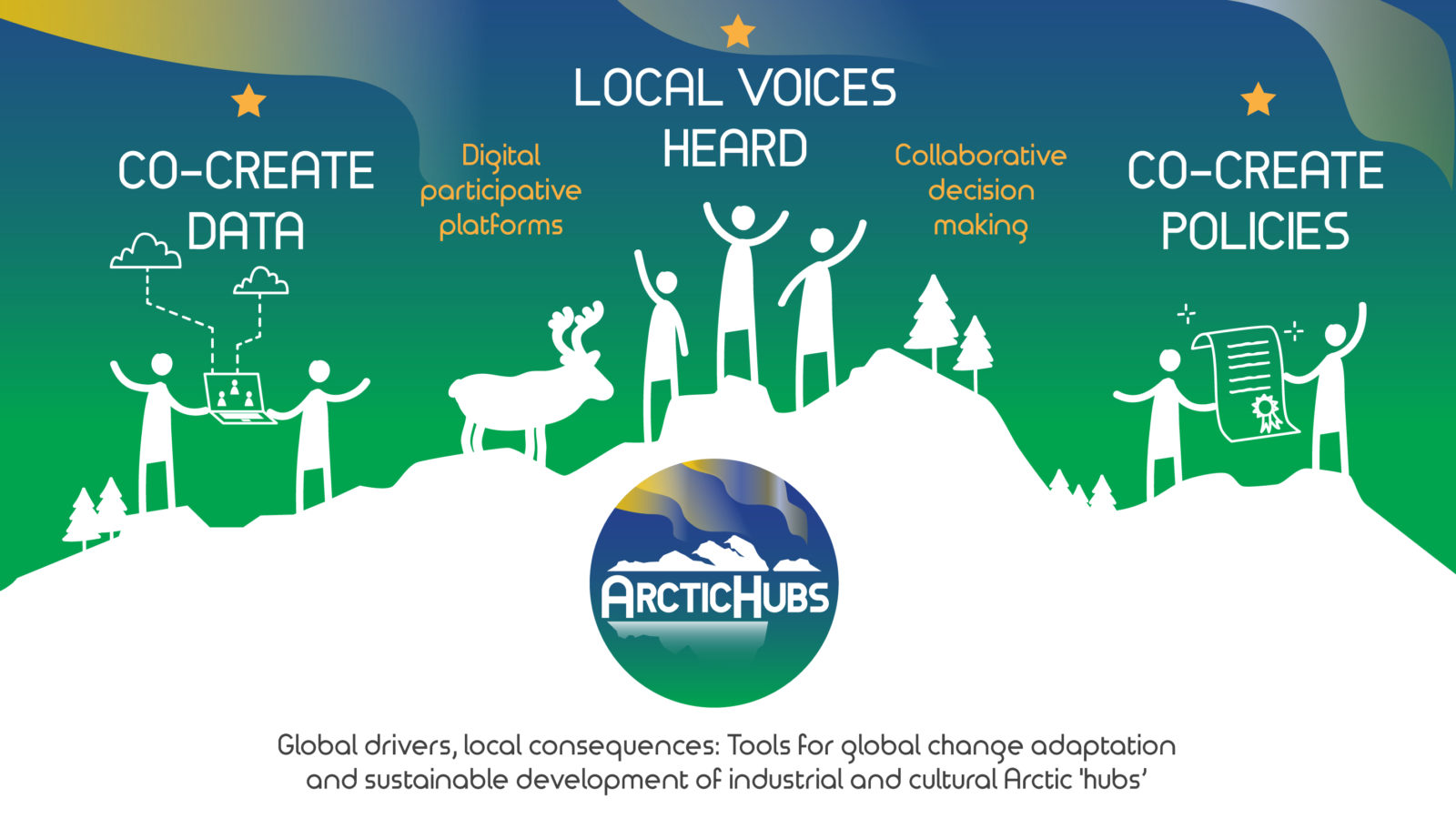
The strategic goal of ArcticHubs is to develop sustainable, solution-oriented tools for reconciling competing models of livelihood and land-use in Arctic hubs and their surroundings, whilst respecting the needs and cultures of local populations (eg Sámi in Fennoscandia).
The project anticipates that such actions will help facilitate the economic development of Arctic hubs that will limit detrimental impacts to ecosystem services (such as air & water purity, wood and non-wood products), and ameliorate the coexistence of new industries with existing industries and livelihoods.
In practical terms, ArcticHubs will focus upon the further development and adoption of three core tools:
- Public participation geographic information systems (PPGIS)
- Guidelines for ‘Social Licence to Operate‘ (SLO)
- Building of future scenarios to be applied in the Arctic
These participatory tools will be trialled and implemented across the diverse settings of the 22 hubs. Furthermore, through anticipation of future changes or alternative scenarios, the project aims to impact in both a flexible and holistically sustainable manner.
Through the exploitation of research and participatory tools, ArcticHubs aims to generate impacts in three critical areas:
- Contributing through enhanced participation of stakeholder and rights-holders to the implementation of the integrated EU policy for the Arctic.
- Input to Intergovernmental Panel on Climate Change (IPCC) assessments, notably by applying foresight methods to predicts effects of climate change on local livelihoods and economic viability of global actors’ activities (e.g. mining, tourism, fish farming, biomass utilisation) in the Arctic.
- Interaction with indigenous peoples and local communities, involving co-creative and participatory methods. These will be adapted to further develop codes of conduct such as Social Licence to Operate (SLO), for land-use issues in which traditional livelihoods can often come into conflict with newer activities.
